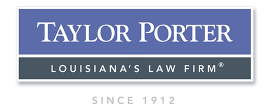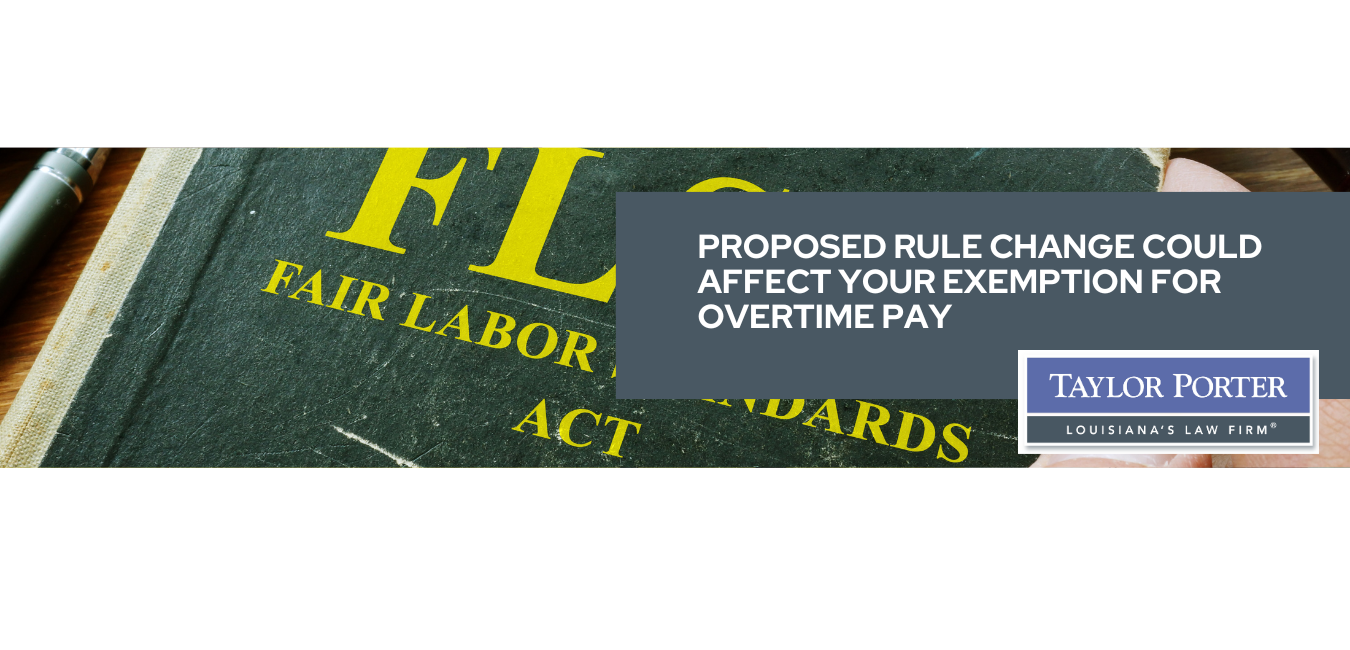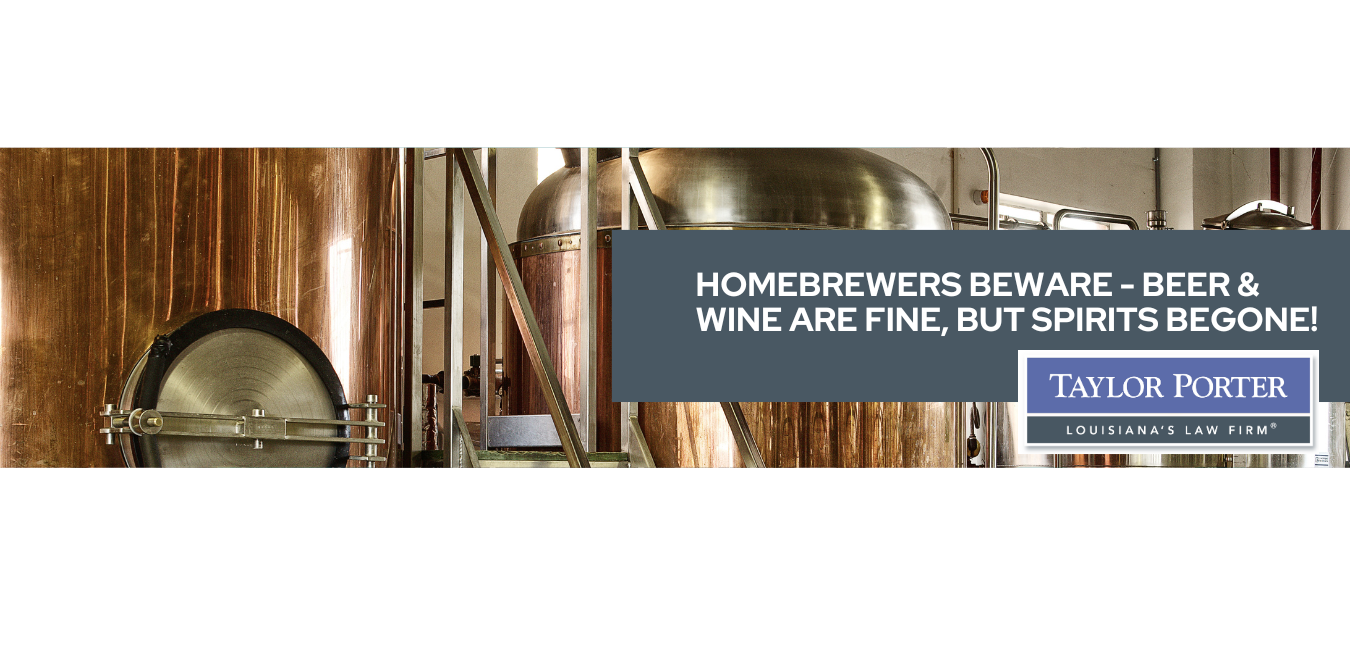Common Issues to Address in Healthcare Organizational Documents
By Blue Loupe
Partner, Taylor Porter
blue.loupe@taylorporter.com
225.381.0209
Published in the Healthcare Journal of Baton Rouge
 Business owners recognize that, prior to producing goods or providing services, discussing the organizational structure, business goals and operational guidelines of the entity are critically important. The importance is no less for an entity involved in the provision of healthcare services. In fact, many of the general provisions included in the organizational documents of a business entity require additional thought and input on the part of the equity owners of healthcare entities.
Business owners recognize that, prior to producing goods or providing services, discussing the organizational structure, business goals and operational guidelines of the entity are critically important. The importance is no less for an entity involved in the provision of healthcare services. In fact, many of the general provisions included in the organizational documents of a business entity require additional thought and input on the part of the equity owners of healthcare entities.
Below are several issues of which healthcare providers should be cognizant when creating business entities for their practices.
Entity Type
For many business owners, a major, initial concern is limiting the liability of the individual, equity owners for the debts of the operating company. The most utilized structures for limiting liability are the business corporation and the limited liability company, each with its strengths and weaknesses. The laws governing corporations are more well-established, but rigid; whereas, the limited liability company is more flexible in its rules of governance.
For healthcare professionals starting a practice in Louisiana, there may be the additional option for a practice specific entity, including, but not limited to, a professional medical corporation (or LLC), a professional nursing corporation, a professional dental corporation (or LLC), or a professional psychology corporation. Depending upon the area of practice, the disciplinary board governing that practice may require the entity to be formed in accordance with the practice specific statutes. Therefore, prior to forming the practice entity, it is important to discuss the appropriate structure with your legal counsel.
Qualifications of Ownership
When entering into a business, especially in a healthcare field, it is important to manage the expectations of each equity owner by delineating the qualifications of ownership and the expected performance of the equity owners. Under Louisiana law, one ownership qualification is mandatory - except for the formation of hospitals, all of the equity owners of an entity formed for the purposes of providing healthcare services in a particular field must be duly licensed to practice in that specific field by the State of Louisiana.
Otherwise, the qualifications and performance expectations are discretionary and should be discussed by the healthcare providers and included within the organizational documents of the practice entity. Some considerations to discuss include the capital contribution to be paid to the entity for a share of ownership, the definition of full-time work, the practice requirements for a call schedule and vacation days. Finally, all equity owners should represent and warrant to one another that they will comply with all federal and state healthcare laws and regulations, including, but not limited to, all billing and coding requirements, the Stark law, the anti-kickback statute and HIPAA. If the equity owners include a provision for the expulsion of an equity owner who is not fulfilling their duties, these qualifications and performance guidelines will be critical in setting those expectations.
Distributions
The equity owners of an entity have significant latitude in determining how to distribute the cash or other property of the business. Generally, the distributions will be made in accordance with: (i) the percentage of ownership of each equity owner; (ii) the production of each equity owner; or (iii) a combination of the foregoing. With respect to healthcare entities, the equity owners must maintain compliance with all federal and state statutes, including, but not limited to, the federal Stark law and anti-kickback statute. Therefore, when such a distribution is made based upon productivity, particularly to a referring physician, the value of such productivity, generally, can only include the professional services personally performed by such equity owner; ancillary services, generally, cannot be included in the value of productivity, and any distribution formula predicated on productivity generated by referrals, rather than personally-performed services, must be carefully examined by qualified healthcare counsel.
Other potential issues to discuss among the equity owners are whether the entity should be required to make distributions: (i) at certain intervals; (ii) to cover the expected tax liabilities of each equity member; and (iii) at any time that the cash reserve, on hand, exceeds a certain threshold.
Valuation of Overhead
In the event that an equity owner will be bought out of their interest in the practice, for any reason whatsoever, including retirement, death or disability, the organizational documents should set forth the manner in which such interest should be valued. The equity owners can agree upon a formula or the equity owners may wish to hire an outside, third-party appraiser. Either way, the protocol should be agreed upon and set out in the organizational documents. Many factors can be considered in determining the value of an interest in an entity, including, but not limited to: the initial capital contribution, the past performance of the practice, the current performance of the practice and the devaluation of the practice caused by the severance of the working relationship with the equity owner. Furthermore, an often overlooked reality in the healthcare industry is the outlay of capital that is required to support the healthcare provider that will no longer be providing services on behalf of the entity (e.g., office space, equipment and support staff), and the equity owners may want to include such overhead costs in any calculations of the value of an interest in the entity.
In addition to retaining legal counsel to assist in the drafting of an entity’s organizational documents, the equity owners of a healthcare practice should also seek advice from an accountant and a tax professional to ensure compliance with the tax code and regulations and to determine the best tax treatment for such an entity. Finally, new regulations that will be in effect as of January 1, 2018, will affect the manner in which business entities that are taxed as partnerships will be audited. One of the requirements of the new audit regime is that entities must appoint a “partnership representative” to interact with the IRS during an audit. If the entity does not appoint a “partnership representative”, the IRS has the ability to appoint a representative on behalf of the entity. Any healthcare professional that is creating a new entity taxed as a partnership, or that currently owns an interest in an entity taxed as a partnership, should contact their legal counsel and accountant to discuss the need to include a provision in the organizational documents of such entity that appoints a “personal representative” of the entity. If you would like any additional information, or if you require assistance with establishing or reorganizing your healthcare entity, please do not hesitate to contact me, or any of Taylor Porter’s healthcare attorneys.
About Blue Loupe: Practicing law since 2006, Taylor Porter Partner Blue Loupe practices primarily in commercial transactions, and his experience includes organizing business entities, negotiating and drafting asset purchase agreements, stock sale agreements, commercial leases, loan and security documents, master service agreements, conducting title examinations, and assisting in loan workouts. Loupe is ranked by his peers among the 2017 Louisiana Rising Stars in Business/Corporate Law. He is a member of the Baton Rouge Bar Association and the Defense Research Institute.
This website is for general information purposes only. Information posted is not intended to be legal advice. For more information, please see our Disclaimer message.
See how we can help. Contact us today
8th Floor • 450 Laurel Street • Baton Rouge, LA 70801 • 225-387-3221
- Disclaimer
- © Taylor, Porter, Brooks & Phillips L.L.P. All rights reserved.






